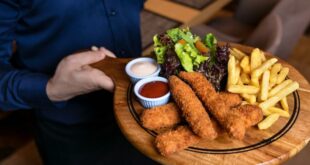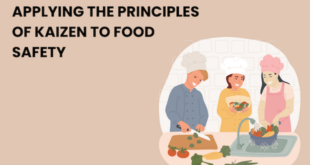Last Updated on March 6, 2024
Looking for a guide on digital marketing for restaurants? Look no further, here is all you need to know to create and implement a digital marketing strategy for your restaurant.
The restaurant industry, a vibrant tapestry of flavors, experiences, and memories, is undergoing a digital revolution. In this age where online presence can be as crucial as the quality of the dishes served, the ability to effectively navigate the digital landscape has become indispensable for success. As a restaurant owner, chef, franchisee, or operator, you’re at the helm of this ever-evolving gastronomic journey. Your days are likely filled with the myriad intricacies of running a restaurant – from perfecting recipes to ensuring impeccable service.
Amidst these demanding responsibilities, the realm of digital marketing may appear as a challenging frontier, yet it is one that holds the key to unlocking new levels of success.
The New Era of Digital Engagement in the Culinary World
In this digital era, a restaurant’s story is not just told through the dishes served but also through the stories shared online. The way a restaurant interacts with its customers on digital platforms is a critical extension of its brand. With social media’s pervasive influence, customers now have the power to shape a restaurant’s reputation with just a few clicks. In such a landscape, understanding and effectively using digital marketing tools is no longer just an option but a necessity for any restaurant aiming to thrive. However, navigating this digital terrain requires more than just a basic understanding of social media; it involves a deep dive into strategic marketing, branding, and customer engagement.
Introducing The Culinary CMO: Pioneers in Restaurant Digital Marketing
At the forefront of bridging this gap is The Culinary CMO, a unique entity that specializes in transforming your existing restaurant team into digital marketing experts. This approach recognizes a fundamental truth – who better to tell the story of your restaurant than the people who breathe life into it every day? Your chefs, who meticulously craft each dish; your servers, who create memorable dining experiences; your managers, who ensure everything runs like clockwork – each member of your team holds a piece of your restaurant’s narrative. The Culinary CMO understands this intimately and offers a transformative approach, equipping your team with the skills and tools to convey this narrative in the digital space effectively.
Setting the Stage for a Comprehensive Digital Marketing Journey
The path to mastering digital marketing in the restaurant industry is multifaceted. It involves understanding the nuances of different digital platforms, developing a robust marketing strategy, creating content that resonates with your audience, and much more. This journey may seem daunting, but with the right guidance and training, it can become an empowering and rewarding experience for your team.
Understanding the Power of Digital Marketing in the Restaurant Industry
In today’s digital age, a restaurant’s online presence is as crucial as its physical one. From social media buzz to online reviews, every digital interaction shapes your brand’s image. Hence, it’s essential to have a strategic restaurant marketing plan that harnesses these digital platforms effectively. This is where training your team in the nuances of digital marketing becomes invaluable.
Crafting a Robust Restaurant Marketing Plan
A well-thought-out restaurant marketing plan is the foundation of effective marketing. It involves understanding your target audience, identifying the right marketing channels, and setting achievable goals. Training your team to develop and execute a comprehensive marketing plan is critical. They’ll learn to analyze market trends, understand customer preferences, and create strategies that resonate with your audience.
Leveraging Restaurant Social Media Marketing
Social media is a powerful tool in the restaurant industry. It’s where your customers share their dining experiences, recommend their favorite dishes, and post tantalizing food pictures. Training your team in restaurant social media marketing means they’ll be equipped to create engaging content, respond to customer feedback, and build a community around your brand. This real-time engagement is vital in creating a loyal customer base and attracting new patrons.
The Role of a Restaurant Marketing Agency
Sometimes, external expertise can complement your team’s efforts. A restaurant marketing agency like The Culinary CMO brings specialized knowledge and experience. They can train your team in advanced marketing techniques, help in developing a more sophisticated marketing strategy, and provide tools and resources that might not be readily available in-house.
Innovative Restaurant Marketing Ideas
Encouraging creativity and innovation is key to standout marketing. Training your team to brainstorm and implement unique restaurant marketing ideas can lead to groundbreaking campaigns. Whether it’s hosting themed nights, partnering with local influencers, or creating viral social media challenges, the aim is to create a buzz that draws customers to your restaurant.
Measuring Success and Adapting Strategies
In the fast-paced world of restaurant digital marketing, understanding the impact of your efforts is crucial. This is where the art of measuring success and the science of adapting strategies come into play. It’s not just about launching campaigns and hoping for the best; it’s about analyzing performance, understanding what works and what doesn’t, and making informed decisions to refine your approach. Here’s how you can dive deeper into this process.
Understanding Key Performance Indicators (KPIs)
The first step in measuring success is identifying the right Key Performance Indicators (KPIs). These metrics could include website traffic, social media engagement (likes, shares, comments), conversion rates, online reservations, and customer feedback. Training your team to track these KPIs will provide valuable insights into the effectiveness of your marketing strategies. For example, a spike in website traffic following a social media campaign could indicate a successful strategy.
Utilizing Analytics Tools
Leveraging analytics tools is essential in deciphering the data behind your digital marketing efforts. Tools like Google Analytics for website traffic, Facebook Insights for social media engagement, and OpenTable for reservation trends can offer a wealth of information. By training your team to use these tools effectively, they can gain a clear understanding of customer behavior, preferences, and patterns. This data is invaluable in making strategic decisions and tailoring your marketing efforts to your audience’s needs.
Conducting Regular Reviews and Audits
Regularly reviewing and auditing your digital marketing strategies is vital. This involves not just looking at the numbers but also analyzing the content and context of your campaigns. What types of posts are getting the most engagement? Which email subject lines have the highest open rates? Are there specific days or times when your audience is most active online? By conducting these reviews, you can identify trends and patterns that can inform future strategies.
A/B Testing for Optimized Results
A/B testing, or split testing, is a method of comparing two versions of a webpage or campaign to see which one performs better. By presenting version A to one segment of your audience and version B to another, you can determine which version yields better results. This could be applied to anything from email marketing campaigns to social media ads. Training your team in A/B testing can lead to more effective and efficient marketing strategies.
Adapting Strategies Based on Feedback
Customer feedback, both online and offline, is a goldmine of information. Encouraging and analyzing customer reviews, comments, and surveys can provide direct insight into what your customers enjoy and what areas need improvement. This feedback should be a key driver in adapting your marketing strategies. For instance, if customers consistently praise a particular dish or service in their reviews, highlighting that in your marketing can capitalize on what you’re doing right.
Embracing Flexibility and Innovation
The digital marketing landscape is always evolving, and so should your strategies. Training your team to be flexible and innovative in their approach is crucial. This means being open to experimenting with new platforms, trying out different content formats (like videos, blogs, or infographics), and staying updated on the latest digital marketing trends. The ability to pivot and adapt to changing circumstances can set your restaurant apart in a crowded digital space.
Conclusion
In conclusion, training your team in the essentials of restaurant digital marketing is a game-changer in today’s market. From crafting a comprehensive restaurant marketing plan to exploring innovative marketing ideas and leveraging social media, the possibilities are endless. Remember, in the world of food and hospitality, how you present your brand is as important as the quality of your dishes. Equip your team with the right marketing skills, and watch your restaurant thrive in the digital era.
Takeaway: The essence of training your team in restaurant digital marketing lies in empowering them with the skills to tell your restaurant’s unique story effectively in the digital world. “The Culinary CMO” provides a blueprint for this transformation, emphasizing the importance of a comprehensive restaurant marketing plan, effective social media engagement, and the utilization of analytics for measuring success and adapting strategies. The takeaway is clear: by harnessing the untapped potential within your team and equipping them with the right tools and knowledge, you can transform your restaurant’s digital presence, engage more effectively with your audience, and drive sustainable growth. This journey of digital marketing is not just a strategy but a continuous adaptation and evolution, mirroring the dynamic and ever-changing landscape of the restaurant industry.
 Travel for Food Hub The Food Blog for Travel Lovers
Travel for Food Hub The Food Blog for Travel Lovers
















